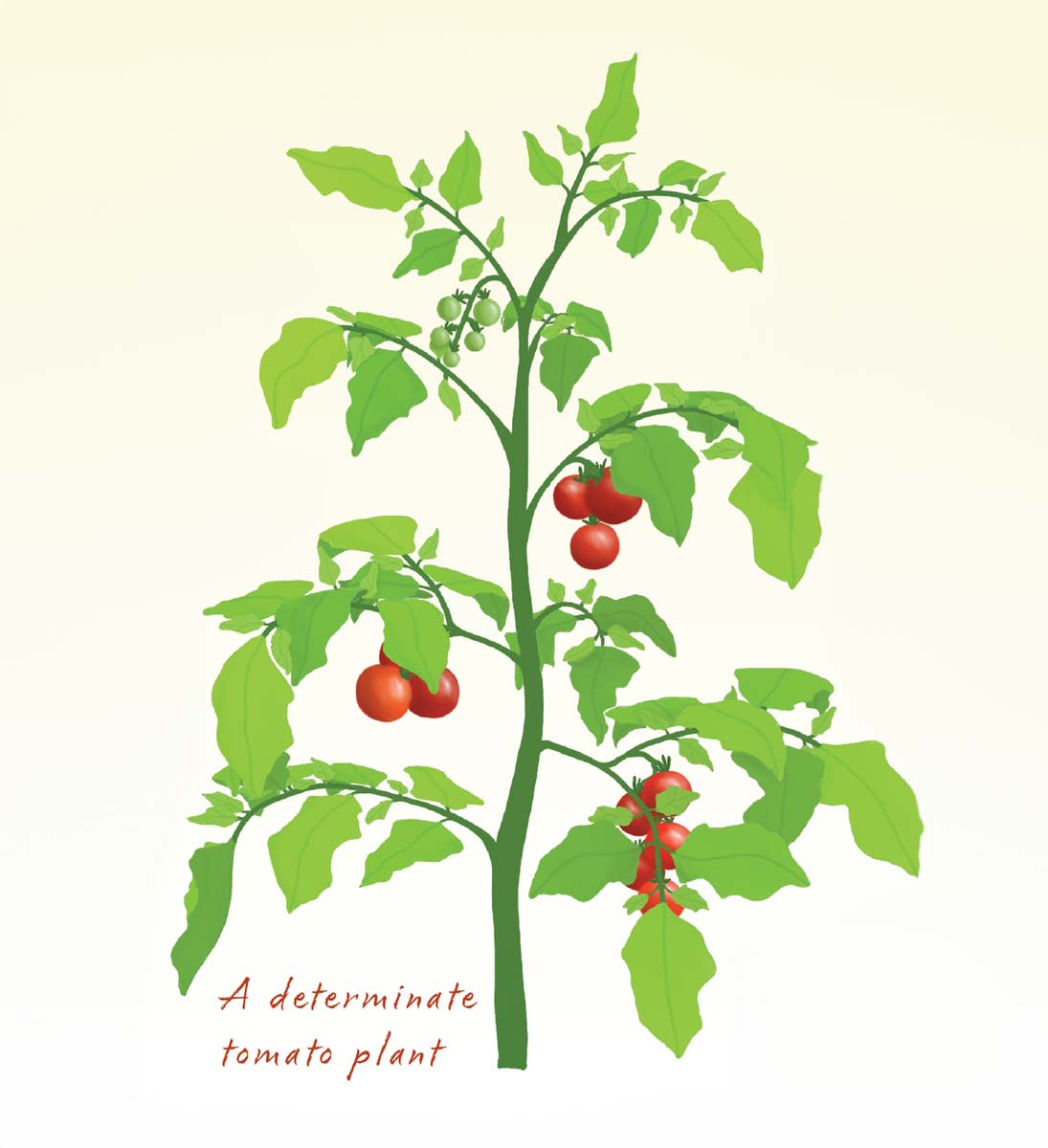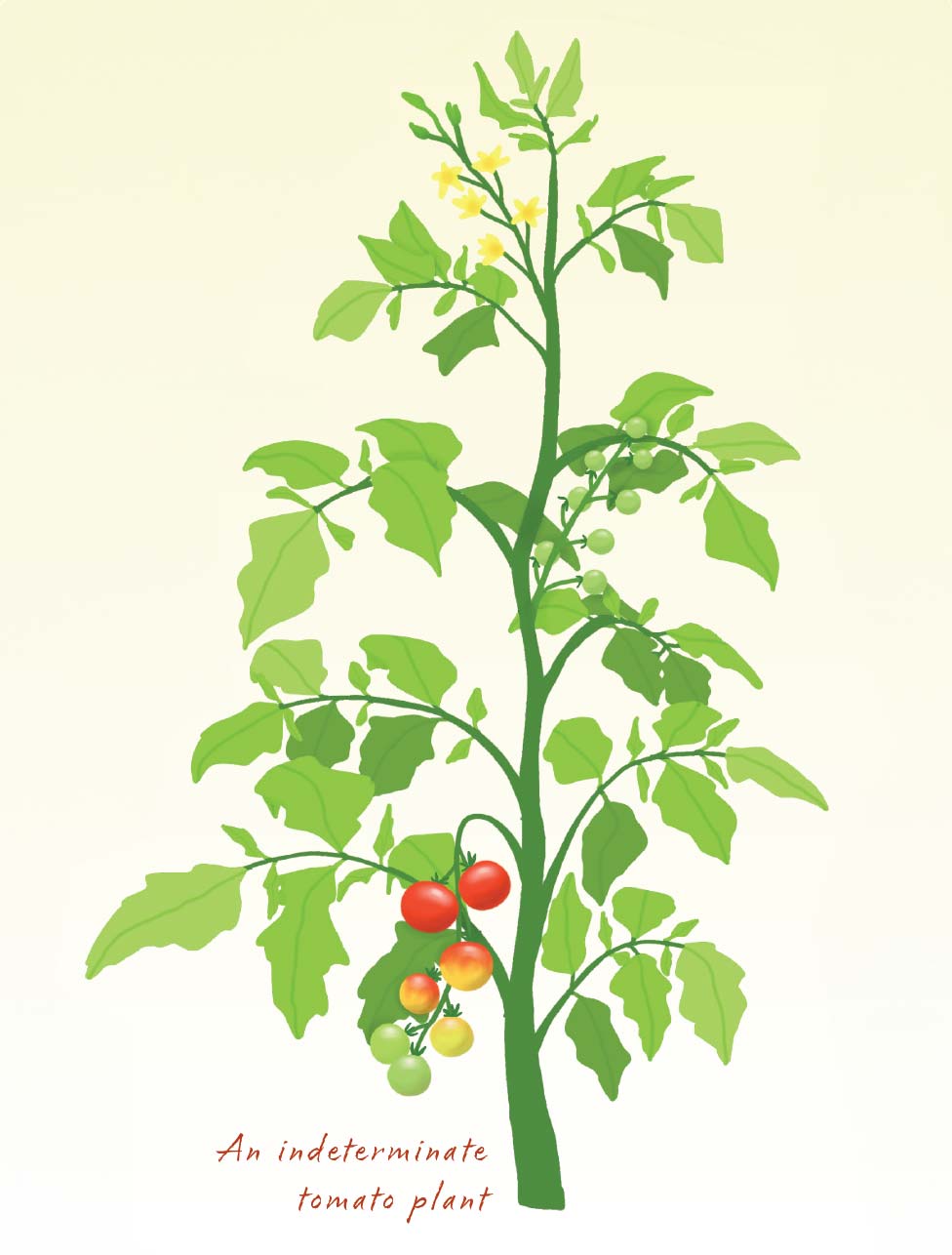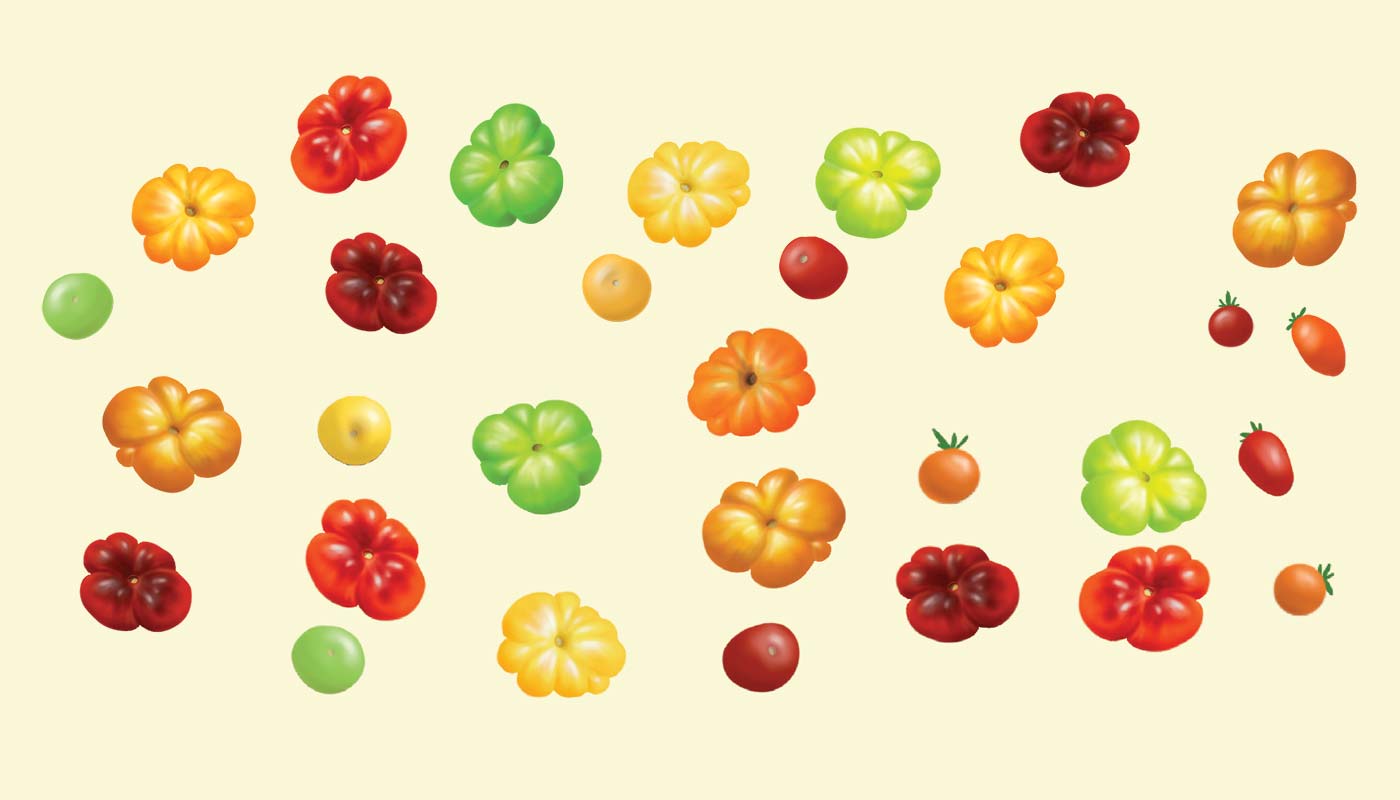Basic Garden Mystery: Determining tomatoes and other acts of gardening
Gardening nomenclature can be so unnecessarily obscure. For example, what’s the enigmatic meaning of an indeterminate tomato? And who would want one if the tomato seemed so undecided? Does the tomato really know what it is, or is its nature still to be determined? Confronting a nursery product that identifies as a mystery does not bode well at the cash register.
To summarize: A determinate tomato sets fruit quickly at a height of three feet. An indeterminate tomato takes longer to bear, like the famous heirloom tomatoes Brandywine and Cherokee Purple, which sprawl indeterminately; some say indifferently. Rules are for other tomatoes, like Celebrity, a tasty semi-determinate with plenty of give.
A TOMATO YOU CAN TRUST
Determinate tomatoes offer a ripe shortcut to tasty gratification. They sound like a tomato you can trust. And the beauty of it is you need not truss determinates as one needs to bind up the indeterminate tomato. Merely hammer three modest 1- by 2-inch sticks in the ground and begin to wrap the tomatoes upright. The three make a triangle, you see. Those galvanized tomato cages are better meant for determinates; such are reusable for years. (Anything permanent is good for soul and planet.) The cages will need at least one vertical mate pounded into the ground to support the weight that will arrive in July.
Plant plenty of them and your marinara fame will tsunami the neighborhood.

BIG FLAVOR FOR BIG EFFORT
The basic nature of the indeterminate tomato is that the tomato vine will keep growing for an indeterminate amount of time. One needs to build a vast armature of posts and twine and buttresses to keep your wandering indeterminate tomato from collapsing onto the soil where night-venturing critters will gnaw on them while you sleep. You obtain big flavor for big effort. This is a garden fact, but underscored for tomatoes because they gather so much admiration. By contrast, few people brag about or are impressed by zucchini unless they are unbelievably large.
HORRORS IN THE NIGHT
The vast buttressing for tomato safety is, of course, a defense against such mischievous swine as the sow bug, earwig and weevil. If you experience sudden overnight chew-marks on your garden foliage look not to the sky for an innocent bird, but come long after dusk with a glowing flashlight loaded with fresh double Ds and you will encounter the horror.
Where did all the snails and slugs come from? They dwell by day in that tangle of ivy between you and the Rasmussen family, where a friendly green border allegedly meant to provide security instead provides no safety from what lurks within such dank, leafy confines. Competent garden detectives observe if there be a crevasse in the garden stonework, trouble waits there for sundown.
Get your plants up off the ground and sweep the perimeter at night. What to do then? This quandary confronts anyone who gardens because the gardener prepares a feast not only for themselves but any creature with a hankering for something that is not Bermuda grass.
Generalizations are frequently useless, but here we may assume that, by their nature, gardeners might be more compassionate than someone who spends their weekends hunting down their friends in a paintball circus. Gardeners can trap their simple adversaries, laying out cardboard or wooden carpentry cast-offs to gather hidden vermin by day, but what then? Why the vegan claim if we select exemptions? I scoop the insects and gastropods into a bucket of soapy water to be rid of them. This callous depravity is easy for me to perform because I have done it for decades. I can promise you, earwigs will not be on the endangered list soon.
You do have an alternative to murder. Just repatriate whatever is bugging your garden to a wild place by the side of the road—like on Olivas Park Drive, or out on Highway 150 west of Ojai. There are laws prohibiting the release of trapped vertebrates, meaning squirrels or rabbits, into the wild because you donate a voracious nuisance to a stranger. There even may be a law against catching and releasing earwigs. No one would want strangers repatriating earwigs and tomato hornworm caterpillars in front of their home, so find a wild place for the wildlife and you will return with a nifty anecdote to share with squeamish friends who have PETA stickers on their refrigerators.
By committing the act of gardening you are disturbing an accidental nature. The nature is there by accident rather than by design, unless you subscribe to the Great Diviner.

DIG WE MUST
By committing the act of gardening you are disturbing an accidental nature. The nature is there by accident rather than by design, unless you subscribe to the Great Diviner. Gardeners dig up soil and expose a billion microbiota to the harsh glare of the sun. Potato bugs waddle off muttering about our insincerity. Earthworms are appalled by our audacity. But dig we must, to plant our hopeful tomato.





